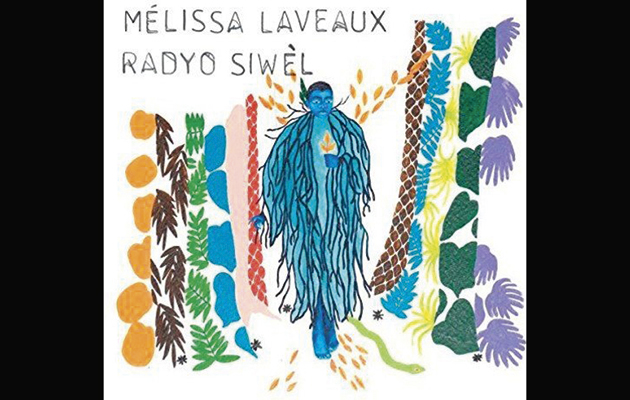Haiti has long been one of the poorest nations in the western hemisphere – and perhaps the most unstable, with a history littered with slavery and brutality, invasions and occupations, coups and dictators and a litany of natural disasters from hurricanes to earthquakes, which seem to reduce its people to a semi-permanent state of emergency.
Yet such calamities have fostered a resilient spirit expressed in a rich cultural legacy of song and dance – and vodou. It is this heritage that Mélissa Laveaux dramatically explores on Radyo Siwèl. Born in Canada to black Haitian parents, Laveaux grew up listening to an eclectic soundtrack of jazz, blues, rock, hip-hop and R&B, ranging from Billie Holiday to Joni Mitchell and from Nina Simone to Aaliyah.
Her debut album Camphor & Copper received an international release in 2009 and Dying Is A Wild Night – taking its title from an Emily Dickinson poem – appeared four years later.
Both were smart indie records, ranging from covers of Elliott Smith and Eartha Kitt to her own original compositions, which drew liberally on her influences. Yet both hinted at something more interesting beneath the surface, with passing references to her Creole heritage, particularly on “Dodo Titit”, a song associated with Martha Jean-Claude, a legendary Haitian singer and civil rights activist who was imprisoned in the 1950s and then forced into exile.
As a fellow ex-pat, Laveaux identified strongly with the Haitian singer and in 2016 she landed in Port-au-Prince to research an album that had been gestating in her mind for a decade. Her original intention was an entire set of Martha Jean-Claude songs, but once in Haiti, she discovered a broader treasure trove of indigenous music and her ambition expanded.
In particular she was struck by the resonant spirit of the songs from the dark days of the American occupation in the first half of the 20th century, when the world’s first independent black republic – which more than a century earlier had emancipated itself from French slavery – was once more tormented by the unwanted presence of a colonial power.
Popular songs, rich with layers of Creole allegory and symbolism, became weapons of resistance, as the vodou divinities, known as loas, were summoned to protect the Haitian people in the fight against their oppressors.
Back home in Paris, where Laveaux now lives, she teamed up with the French production team A.L.B.E.R.T. and set about processing the trad tunes, vodou anthems, stories and scraps she had uncovered, and reupholstering them with her own strikingly contemporary soundtrack of reverberating indie guitars and rock’n’roll rhythms.
Naming the album after the old rural orchestras of Haiti known as Bann’ Siwel, the dozen tracks were recorded and mixed in just five days. With Laveaux singing mostly in Creole in a seductively smoke-and-whiskey-stained tone, the result is a vivid set of utterly irresistible melodies that sparkle with the mystery of a vodou ceremony injected with the spirit of garage-rock rebellion.
“Le Ma Monte Chwal Mwen” is a song from Martha Jean-Claude’s repertoire about the eroticism of possession by the spirits, sung in a lubricious husk over a shuffling beat and echoing electric guitar. “Nan Fon Bwa” is a party song spooked by some “96 Tears”-style organ, and sounds like something Manu Chao might have written, although the song is a century old.
“Kouzen” is another vodou folk song with a mesmerising Latin-rock rhythm and an ear-worming melody, while “Simalo” is a vodou tale involving a goat that dies of a broken heart after being divorced by its human wife. Meanwhile, “Jolibwa” is based on a lyric about a journalist murdered by the authorities for his critical articles, with an insistent guitar riff and melody added by Laveaux.
“Tolalito”, another Marie Jean-Claude song with a risque lyric (“I dreamt you were a bicycle and I rode you all night”), is delivered as a delicious slice of breathy 1960s girl-pop, like Dusty in Haiti. Named after a vodou divinity representing rebellion, “Nibo” is the album’s hardest rocking track, with a clattering Bo Diddley beat that builds relentlessly to a menacing climax. The album winds down with “Panama Mwen Tombe”, an old folk song full of superstition and omen with a relaxed New Orleans shuffle reminiscent of “Iko Iko” and a playful radio show outro, namechecking the band, Bonzo Dog style.
It’s one of those records that is somewhat sui generis, and yet with an appeal that is universal and accessible at the same time. Simply wonderful – or bèl bagay as they say in Creole.
Like us on Facebook to keep up to date with the latest news from Uncut
Uncut: the past, present and future of great music



